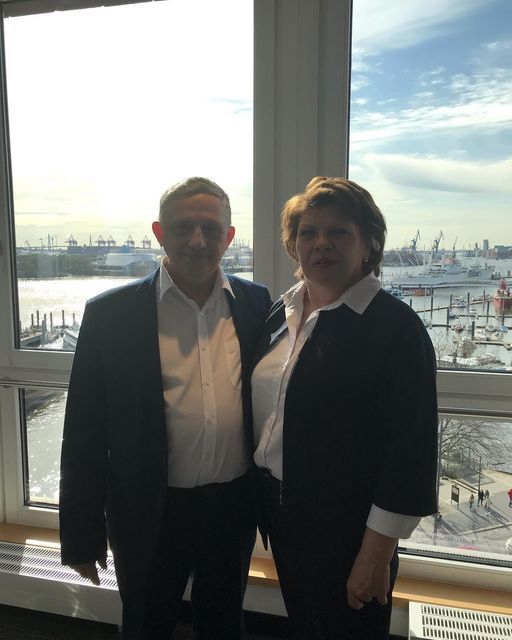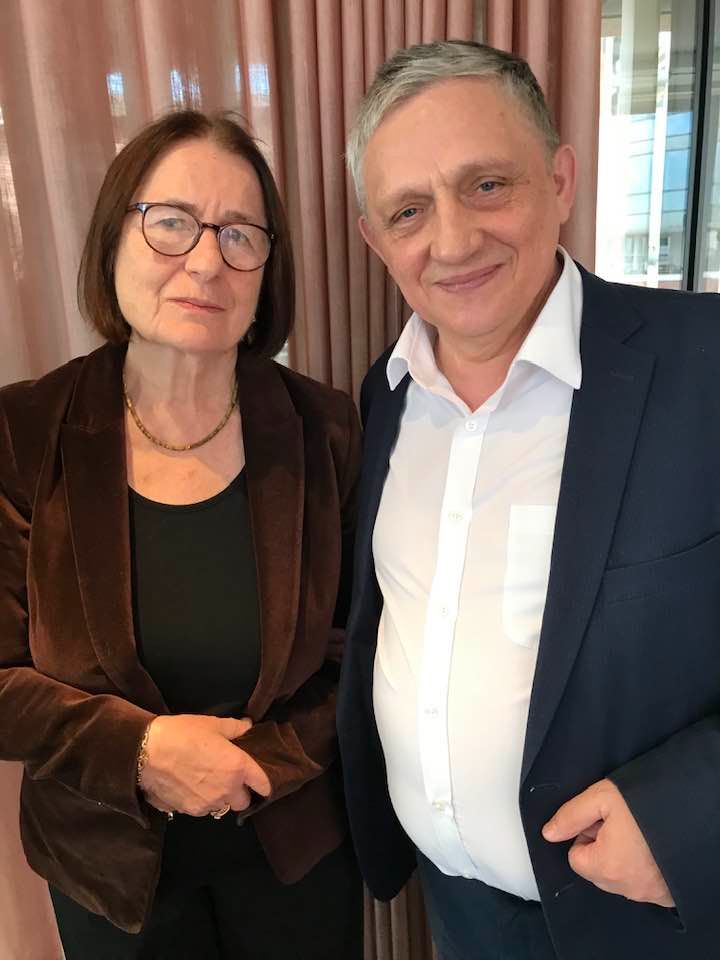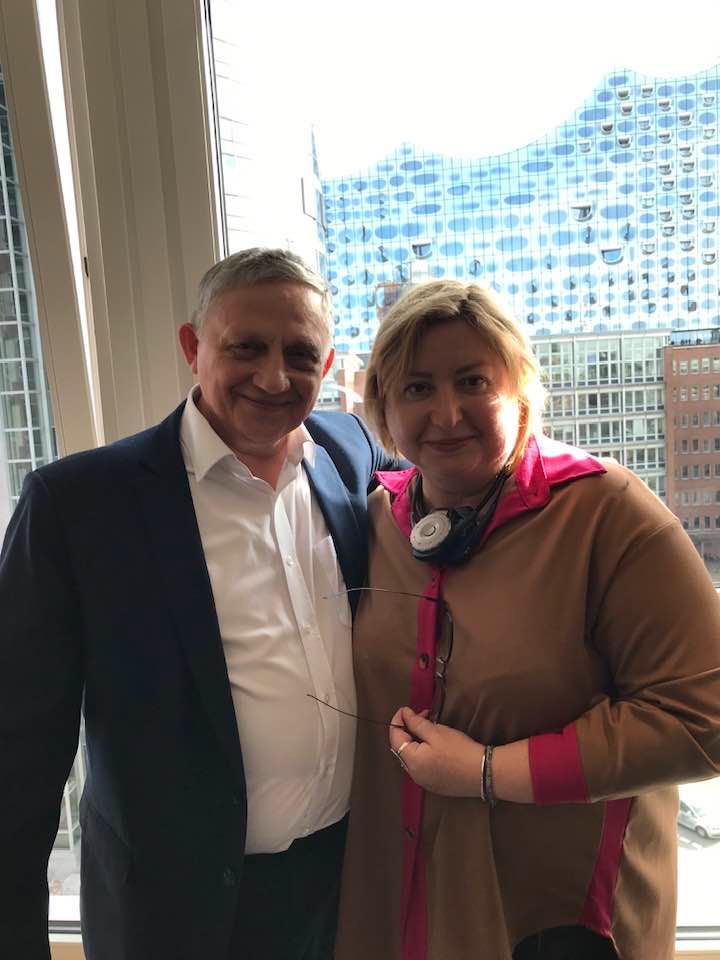Exiles from Russia and Belarus listened in the Free City of Hamburg
Posted on






 Yesterday (04/17/2023), as guests of the Hamburg Foundation for the Politically Persecuted, I, together with the poet from Belarus, Yulia Timofeeva, took part in a discussion held at the Hamburg Town Hall as part of the Hamburg "Days of Exile". The Town Hall is not only the residence of the local government and parliament of the Free and Hanseatic City of Hamburg, but also a museum of the late XIX century. A little bit from the history of the Free City of Hamburg. In 1241, the Union of the German cities of Lubeck and Hamburg was formed. By the beginning of the XV century, the Hansa united about 160 cities united by trade and economic interests, including Veliky Novgorod. The well-known German journalist Johannes von Donanyi acted as the host of the current event. The welcoming speech was delivered by Mrs. Carola Veit, President of Hamburg Citizenship (Chairman of the State Parliament of the Free and Hanseatic City of Hamburg).
Yesterday (04/17/2023), as guests of the Hamburg Foundation for the Politically Persecuted, I, together with the poet from Belarus, Yulia Timofeeva, took part in a discussion held at the Hamburg Town Hall as part of the Hamburg "Days of Exile". The Town Hall is not only the residence of the local government and parliament of the Free and Hanseatic City of Hamburg, but also a museum of the late XIX century. A little bit from the history of the Free City of Hamburg. In 1241, the Union of the German cities of Lubeck and Hamburg was formed. By the beginning of the XV century, the Hansa united about 160 cities united by trade and economic interests, including Veliky Novgorod. The well-known German journalist Johannes von Donanyi acted as the host of the current event. The welcoming speech was delivered by Mrs. Carola Veit, President of Hamburg Citizenship (Chairman of the State Parliament of the Free and Hanseatic City of Hamburg).
The moderator of the discussion asked me how it could happen that the Russian people, known for their cultural achievements, supported military aggression against an independent state. I replied that it happened to the Russian people in the same way as in the last century with the German people, who were also known for their philosophers and cultural figures. Unfortunately, authoritarian countries are not uncommon in the world and the methods of rule of dictators are similar. This is total propaganda for its own population, the search for internal and external enemies, repression against dissidents. In the case of countries that are small in size and territory, like Portugal, only their own people suffer from the dictator, and in the case of countries like Germany or Russia, neighboring peoples and even the entire world community suffer.
In conclusion, we expressed the hope that Russia and Belarus will become free and democratic countries. Photo 1. From left to right, Johannes von Donanyi, Yulia Timofeeva and Alexander Goncharenko; Photo 2. Carola Veit; Photo 3. Alexander Goncharenko answers questions; Photo 4. Participants of the event Photo 5. Participants of the event; Photo 6. Johannes von Donanyi, Yulia Timofeeva, Alexander Goncharenko and Martina Berle (Managing Director of the Hamburg Foundation for Political Persecuted); Photo 7. In memory of the background of the Hamburg Town Hall
Alexander Goncharenko, doctor, politician and human rights activist


 A meeting of Russian emigrants living in Germany was held in Hamburg on 04.04.
A meeting of Russian emigrants living in Germany was held in Hamburg on 04.04.